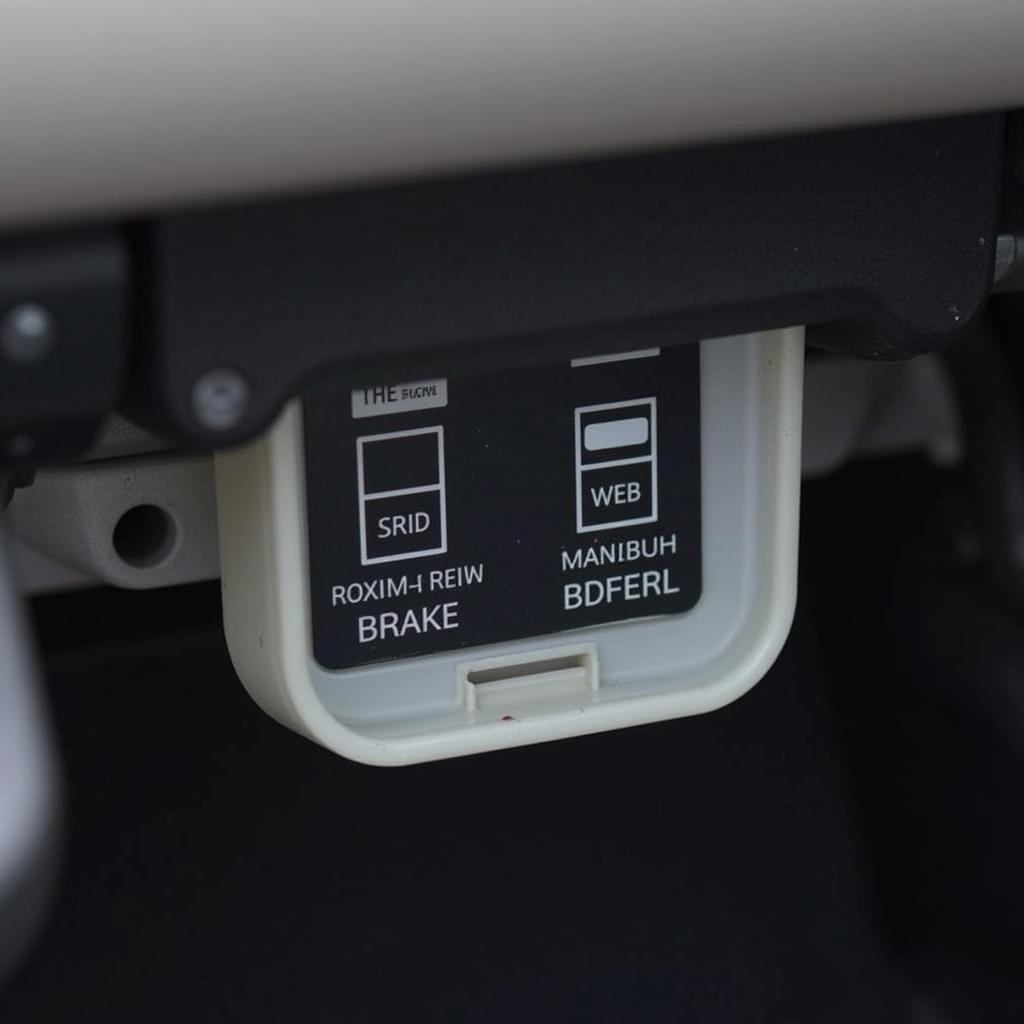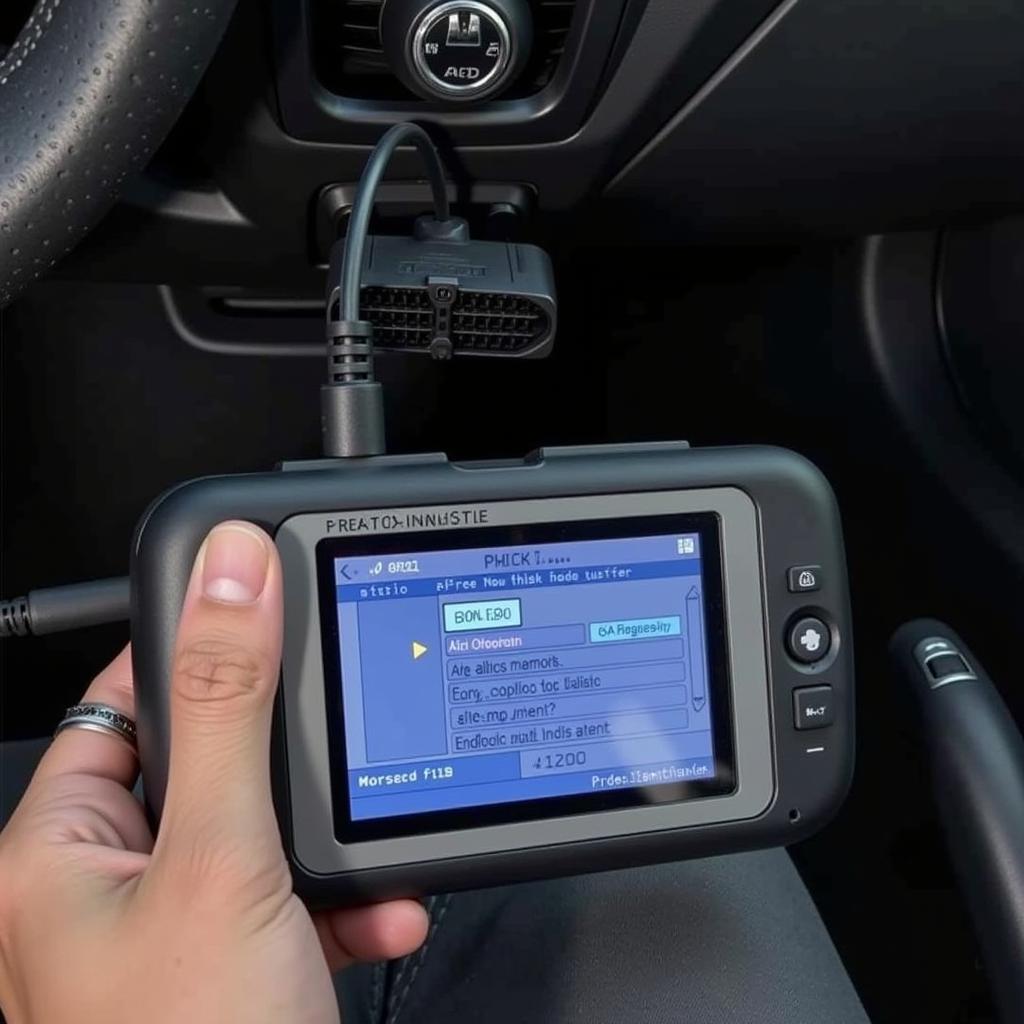The ABS brake warning light on your Toyota Prius illuminating can be a cause for concern, but it doesn’t necessarily mean a trip to the mechanic is imminent. This comprehensive guide will delve into the common reasons behind the Prius ABS and brake warning light turning on, and provide potential solutions to get you back on the road safely.
Understanding Your Prius’s Braking System
Before we dive into troubleshooting, it’s crucial to understand the basics of your Prius’s braking system and the role the ABS (Anti-lock Braking System) plays.
- Conventional Braking System: When you press the brake pedal, hydraulic pressure is applied to the brake calipers, squeezing the brake pads against the rotors and slowing the car down.
- Anti-lock Braking System (ABS): The ABS is a safety feature designed to prevent your wheels from locking up during hard braking, helping you maintain steering control. It uses wheel speed sensors to monitor individual wheel rotation and modulates brake pressure to prevent skidding.
Common Causes of a Prius ABS Brake Warning Light
Several factors can trigger the ABS brake warning light on your Prius. Here are some of the most common culprits:
1. Faulty Wheel Speed Sensors
Wheel speed sensors are crucial for the ABS to function correctly. If a sensor is dirty, damaged, or malfunctioning, it can disrupt the ABS operation and trigger the warning light.
2. ABS Control Module Issues
The ABS control module is the brain of the system, receiving data from the wheel speed sensors and regulating brake pressure. A faulty ABS module can lead to a range of braking issues, including the illumination of the warning light.
3. Low Brake Fluid Level
Brake fluid is essential for transmitting hydraulic pressure from the master cylinder to the brake calipers. If the brake fluid level is low, it could indicate a leak in the system, potentially affecting ABS performance.
 Prius Brake Fluid Reservoir
Prius Brake Fluid Reservoir
4. Worn Brake Pads
While worn brake pads might not directly trigger the ABS warning light, their condition can affect braking performance and potentially impact the ABS. It’s important to replace worn brake pads promptly.
5. Electrical Problems
Electrical issues, such as a blown fuse or a wiring problem within the ABS system, can interrupt the flow of information and power, leading to warning lights.
2001 prius abs brake warning light
How to Diagnose the Problem
Determining the exact cause of your Prius ABS brake warning light requires a systematic approach:
- Check Warning Lights: Pay close attention to any other warning lights illuminated on your dashboard, as they can provide additional clues.
- Inspect Brake Fluid: Check the brake fluid level in the reservoir. If it’s low, there might be a leak.
- Visual Inspection: Visually examine the visible components of your braking system, such as brake lines and connections, for any signs of damage or leaks.
- Diagnostic Scanner: Using an OBD-II scanner, you can read the trouble codes stored in your Prius’s computer, which can pinpoint the specific area of the problem.
 Using an OBD-II Scanner on a Prius
Using an OBD-II Scanner on a Prius
2008 prius abs vsc and brake warning light on
What to Do When the Light Comes On
If the ABS brake warning light illuminates while driving:
- Stay Calm: Avoid panic and continue driving cautiously.
- Reduce Speed: Gradually decrease your speed and maintain a safe distance from other vehicles.
- Pull Over Safely: As soon as possible, pull over to a safe location.
- Assess the Situation: Check the brake fluid level and inspect the braking system for any visible issues.
- Seek Professional Help: If you suspect a serious problem or are unable to diagnose the issue, contact a qualified mechanic or dealership for assistance.
Prius ABS Brake Warning Light: FAQs
-
Q: Is it safe to drive with the ABS light on?
A: While you may still have conventional braking, the ABS functionality might be compromised. It’s crucial to exercise caution, avoid hard braking, and have the issue diagnosed and repaired by a professional as soon as possible.
-
Q: Can I reset the ABS light myself?
A: While you can temporarily reset the ABS light using an OBD-II scanner, it’s not a permanent fix. The light will reappear if the underlying issue persists.
-
Q: How much does it cost to fix a Prius ABS brake warning light?
A: The cost of repair can vary significantly depending on the underlying cause. A faulty wheel speed sensor might be relatively inexpensive to replace, while an ABS module replacement can be more costly.
prius abs vsc warning brake light short circuit
prius brake and abs warning light
2004 toyota prius brake warning light
Conclusion
The ABS brake warning light on your Toyota Prius is a safety-critical indicator that should never be ignored. By understanding the potential causes and taking appropriate steps for diagnosis and repair, you can ensure the safe and reliable operation of your vehicle’s braking system. Remember, when in doubt, always consult with a qualified mechanic or dealership for expert assistance.
